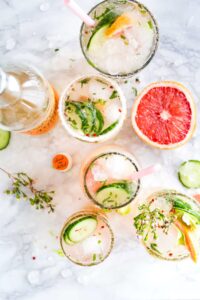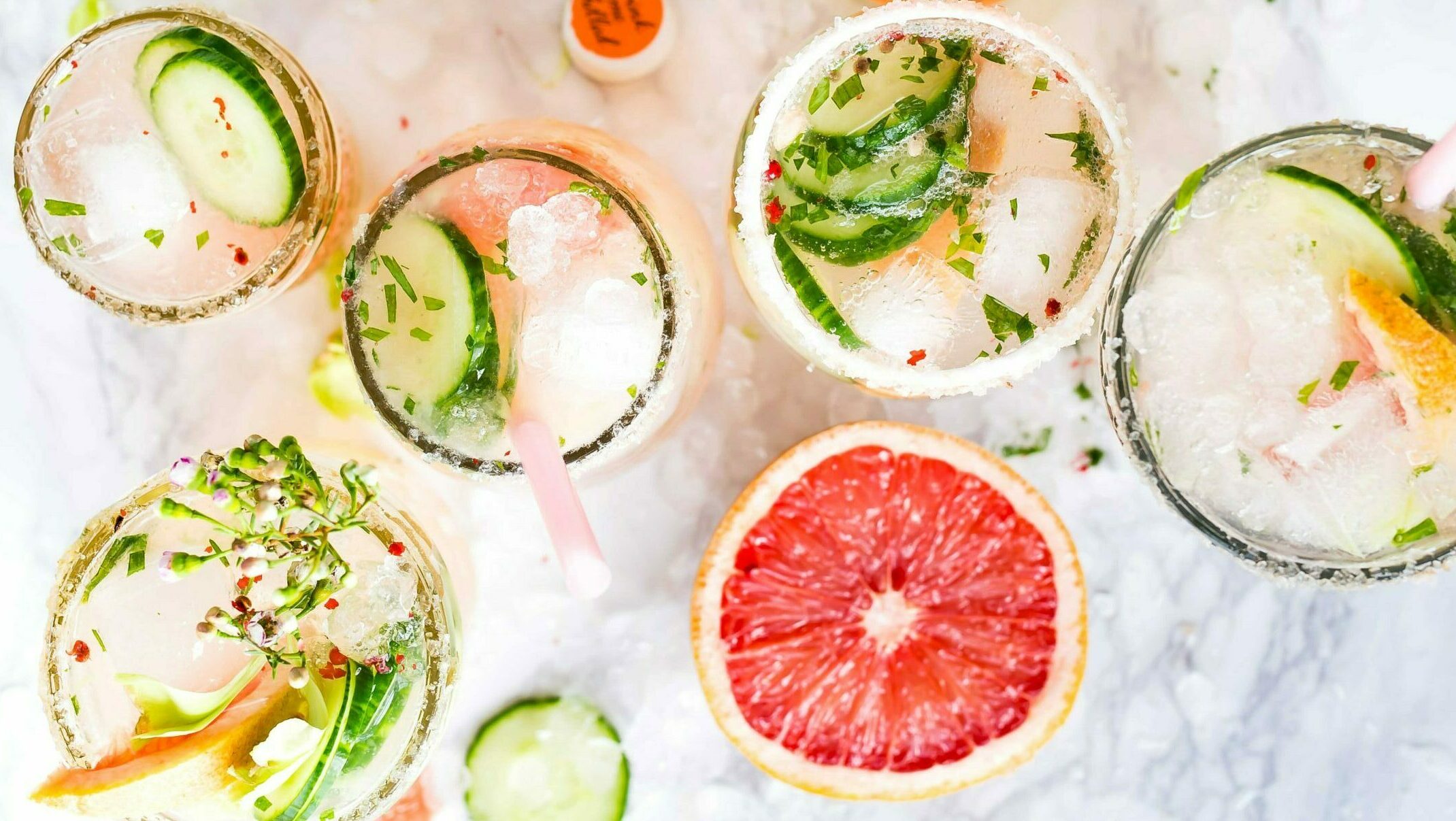Agua fresca may be the ultimate summertime drink. Made mostly with fruit, it takes full advantage of Alabama’s bounty of berries, stone fruit, and melons. Fully refreshing, it has a fraction of the sugar found in soft drinks and sweet tea.
Agua fresca translates as “fresh water.” The drink originated in Mexico but variations are enjoyed as hot-weather refreshers throughout the Caribbean and Americas. Sweet and tart, the non-alcoholic drink is terrific for all ages. But it also mixes well with tequila, rum, and neutral spirits like vodka.

(Brooke Lark/Unsplash)
The basic blueprint is cut fruit, water, fresh-squeezed lime juice, and sweetener as needed. Optional enhancements include sliced jalapeno peppers, fresh herbs, and rose water.
A high-speed blender is best for liquefying the fruit. Strain using wider mesh for pulpier fruit like pineapple and medium mesh for fruit with a higher water content like watermelon. Many recipes call for initially blending the fruit, lime juice, and sweetener with half of the water, then straining before stirring in the remaining water.
The seasonality of the fruit determines the amount of sweetener needed. Fruit grown in Alabama and nearby generally is at peak ripeness and flavor when you buy it, and needs little adornment. Average grocery-store fruit, especially out-of-season items grown continents away, likely need a sugar boost.
Fresh-frozen fruit works well in the off-season. For variety, don’t overlook markets that specialize in international foods, which stock ripe dragon fruit, mango, prickly pear, guava, and other tasty tropical alternatives.
The choice of sweetener is up to you. Fine white cane sugar and crystalline brown turbinado (aka raw) sugar add different flavors. Turbinado retains more molasses from the sugar cane but is harder to dissolve. Agave syrup is widely available and dissolves easily. Because it’s concentrated, only use half the measurement you would for cane sugar. Regardless of choice, err on the side of starting with too little sweetener; you can always add more.
Lime is the typical source of tartness that balances the sweetness in agua fresca. Lemon works. Tart late-season citrus like Alabama-grown kumquats and satsumas make interesting substitutes.
With so many factors at play, a hard-and-fast recipe for agua fresca won’t work. Start with this general guide, and tinker with it to create a batch that suits your taste.
Watermelon: Depending on its ripeness and your preferences, use 4-5 cups of watermelon and 5-6 teaspoons of lime juice per 3 cups of water. Minimal sugar is needed; an alternative is mint simple syrup. Use a medium-mesh strainer.
Cantaloupe (and similar muskmelons): Use very ripe melons. Halve and seed the melon and scoop out the insides. Blend with 4 cups water, and up to ¼ cup of sugar. This goes well with fresh basil. Use a large-mesh strainer.
Pineapple: Add 2-3 cups of cored, peeled chopped pineapple to up to 6 cups of water and up to ½ cup of sugar. Jalapenos are a popular addition. Use a wide-mesh strainer.
Mango: Blend 1 ¼ pounds of mango chunks (about 2 ½ cups), 3-4 teaspoons of agave nectar, 5 cups of water, and juice from one lime. Use a large-mesh strainer.
Peach: Use only peaches or blend with pineapple or cantaloupe. Puree 4 cups of fruit (4-5 medium peaches), 2-3 cups water, and up to 1/3 cup sugar (molasses-rich sugars like turbinado go well with peaches), with an optional squeeze of lemon or lime juice. Use a medium-mesh strainer
Blackberries (or raspberries): Start with 2 cups of berries, adding 2-3 cups of water, juice of 1 lime, and 3 tablespoons of agave nectar. Use a fine-mesh strainer.
[/fusion_text][/fusion_builder_column][/fusion_builder_row][/fusion_builder_container]




